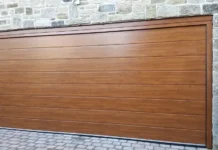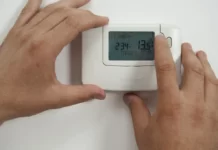Everyone wants a clean home, and one way to get a cleaner space is to make the air cleaner. An excellent way to do that is by buying a high-quality air filter. There are two kinds of air filters that homeowners and renters can choose from, MERV air filters and HEPA air filters. Both MERV and HEPA air filters are considered high-efficiency air filters.
These filters are an addition to the central air conditioning unit. Central air conditioners circulate indoor air, removing contaminants from it as part of their process. However, there is no airflow restriction on that unit and unfiltered outdoor air can enter into a home or building through open doors or windows, bringing with it allergens and other pollutants. These pollutants settle in indoor areas until they are removed by either MERV or HEPA air filters.
MERV stands for Minimum Efficiency Reporting Values and was established by The American Society of Heating, Refrigerating, and Air-Conditioning Engineers to determine how well an air filter will filter out dirt, debris, and other pollutants when it is working at its lowest efficiency. There are 16 different MERV ratings, and the higher the number, the more efficient the air filters work to clean the air.
HEPA stands for High-Efficiency Particulate Air, and this type of air filter filters out the tiniest of particles and pollutants and has a MERV rating of 17. They can capture 99.97% of particles that are 0.3 to 1.0 microns and are often used in hospitals and medical establishments.
Since the HEPA filter has a MERV rating of 17, it has a higher rating than a MERV 13 filter.
How Does the MERV System Work?
The American Society of Heating Refrigeration and Air-Conditioning Engineers has established 16 MERV ratings, and the higher the number is, the more efficient the air filter is. So a MERV rating of 16 would be better than a MERV rating of 1. Twelve size ranges of pollutants have been tested to determine the ratings, ranging from 0.3 micrometers to 10 micrometers. The filters are tested upstream and downstream, where the twelve size ranges are tested in six intervals with a clean filter to begin with, then the filters are tested for dust.
To determine the air filter’s efficiency, the particles that go into the test duct will be tested before they go into the test duct and after. Based on what is evaluated, a MERV rating will be established.
MERV 13 Air Filter
There are several different types of MERV ratings, but we are focusing on the MERV 13 filter. MERV ratings of 13 to 16 help control airborne bacteria, tobacco smoke, and pollutants from sneezing. These filters work great for smoking lounges, surgery suits, and commercial buildings since so many people frequent them, and the contaminants that these filters control are primarily in these types of spaces.
MERV 13 through 16 are the highest-rated air filters compared to the lower number of MERV 1-12 and will give you the best air filtration for your home or office building.
Which One Should I Select?
Depending on your home or office needs, either one of these choices is good to pick. They both catch smaller particles and help catch airborne bacteria, making them an excellent choice for hospitals, offices, or residential homes.
One downside you should know about these filters is the amount of dust, debris, and particles they catch; your HVAC system might have to work overtime to push out the air into your building. For this reason, you should ensure that you have the best possible HVAC system in place that can handle these filters. It is essential to know that your energy bill might get more costly. Also, because they catch so many things from the air, you will have to clean them or replace them more often.
When deciding on the type of filter to choose, it is essential to consider these things and consider why you want a higher-quality air filter. Do you own an office building and want clean air for your employees? Is it because you run a hospital and the air needs to stay clean? Are you trying to protect your family members from airborne bacteria?
These reasons are great reasons to choose one of these air filters. Although if you do not live with or have any employees with pre-existing conditions, respiratory problems, allergies, or asthma, a lower-quality MERV air filter may work. But you should not go below a MERV rating of 8 since that is the lowest air filter that will get rid of things like mold and dust, while MERV ratings one through four only work with dust and carpet lint and particles.
Whether you choose a MERV 13 filter or a HEPA filter, you will be completely protected from harmful pollutants.














